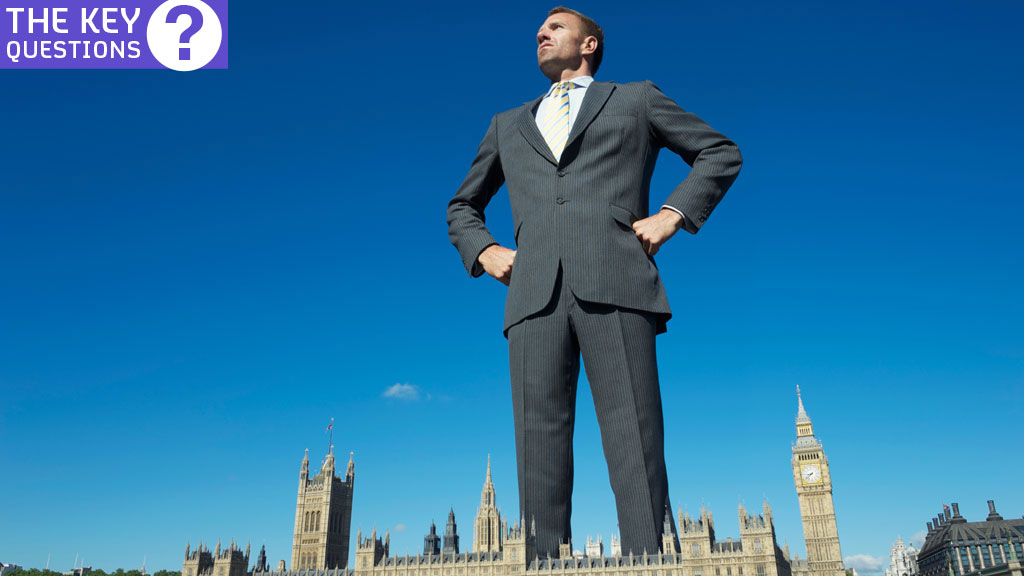Political lobbying – the key questions
As David Cameron announces a statutory register and the Commons speaker suspends parliamentary passes, why is lobbying dominating the headlines again?

Back in opposition in 2010, Mr Cameron identified parliamentary lobbying as the next big scandal to hit politics.
The idea for a register of lobbyists was included in the 2010 coalition agreement, but was left out of the Queen’s speech in May.
Recent events have convinced the prime minister that action is needed now and a lobbying bill, setting out plans for a register, will be brought forward to July.
Why is David Cameron acting now?
The prime minister’s hand has been forced by allegations that a Conservative MP, two Labour peers and an Ulster Unionist peer were willing to exercise political influence in exchange for money from undercover reporters posing as lobbyists.
This would be against parliamentary rules.
Patrick Mercer resigned the Tory whip and referred himself to the Commons standards commissioner after the BBC’s Panorama programme and the Daily Telegraph alleged that he was prepared to set up a parliamentary group to lobby for Fiji.
He has denied doing anything wrong and is taking legal advice.
Labour peers Lord Cunningham and Lord Mackenzie of Framwellgate and Ulster Unionist peer Lord Laird were accused by the Sunday Times of agreeing to accept payment to work in parliament for a fake solar energy company, against parliamentary rules.
The Labour peers have been suspended from their party and Lord Laird has resigned his party’s whip. They too have denied wrongdoing.
What is David Cameron proposing?
The prime minister is proposing a register of parliamentary lobbyists, including the names of lobbying companies and the clients they represent, with financial penalties for those who refuse to comply.
Tom Brake, the deputy leader of the Commons, told the BBC: “What will change is that when ministers are lobbied by companies that specialise in lobbying, people will be able to see who those companies are representing.”
What do critics say?
It is likely that the register will only apply to so-called “third party” lobbyists: public affairs companies representing clients in parliament.
There are no indications it will also cover “in-house” public affairs and public relations staff.
So Acme Lobbying Ltd and its client, Giant Food Stores, would be on the register. But the head of PR at Giant Food Stores would be excluded.
The Alliance for Lobbying Transparency (ALT) says this would mean three quarters of the lobbying industry would be excluded.
And the register would not explain what lobbyists were doing, who they were meeting in government and which policies and laws they were trying to shape.
The proposal has also been criticised by the Commons political and constitutional reform committee, which said in a report that only including “third party” lobbyists would do little to improve transparency.
Doesn’t the lobbying industry already have a register?
The UK Public Affairs Council (Ukpac), responsible for the self-regulation of the lobbying industry, runs an online register listing lobbyists and the companies they work for.
But the register is voluntary and critics say it is incomplete as a result.
Like the ALT, Ukpac believes the new statutory register should include “in-house” public affairs professionals.
What is the row over parliamentary passes?
Commons Speaker John Bercow has decided to suspend issuing any new passes to staff working for all-party parliamentary groups, due to fears that some of these groups are being used for political lobbying.
All 83 passes currently issued to staff, which are sponsored by MPs, will also be reviewed.
The names of staff who hold these passes are published on the parliament website.
Why is there concern about all-party parliamentary groups?
Mr Mercer is alleged to have agreed to set up an all-party group on Fiji.
The names of members of these groups, along with the countries and subjects they cover, are also publicly available.
There is also information on “benefits received by group from sources outside parliament”.
The entry on the pharmaceutical industry group says the Association of the British Pharmaceutical Industry “acts as the group’s secretariat”.
The British Association for Shooting and Conservation acts as the shooting and conservation group’s secretariat “and funds the group’s annual dinner”.
Oil and Gas UK “provides administrative support” for the oil and gas group “and pays for the group’s annual reception”.
And Weight Watchers provides the Weight Watchers group with “a leader for meetings, free literature, and waives meeting and registration fees to the value of approximately £235 per member per year”.